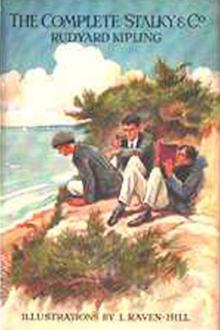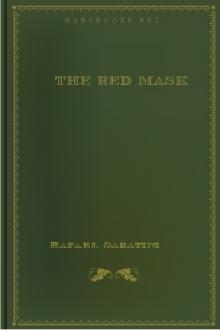Genre Short Story. Page - 7

his look was one of contentment; and I could but note the suggestion of merriment--the merriment of a happy memory--in his eye. How happy it is for an offspring to be able to recall the character of his forefathers with such liveliness of mind!
"The motive which impelled me towards Texas," he resumed, "was one which was natural for me to feel, thus ancestrally connected. I had heired my father's business,--the deacon, who had died full of honors, ripe in years, and in perfect peace. But the business did not prosper in my hands; perhaps, I had not heired, with the business, the deacon's ability,--that accuracy of eye, that gravity of appearance, that deftness of touch, so to speak, which underlay his success. Be that as it may, the business did not pay, and without hesitation I sold it; and, with a comfortable sum for investment, I journeyed to Texas.
"It is proper for me to remark that the welcome I received was most cordial. I chose a populous centre for a temporary residence, and proceeded to

"Places where many people live close together."
"Oh," said the girl frowning. "No. There are no cities here."
"Then where are the people of Paracosma? You must have neighbors."
The girl looked puzzled. "A man and a woman live off there," she said, gesturing toward a distant blue range of hills dim on the horizon. "Far away over there. I went there once, but Leucon and I prefer the valley."
"But Galatea!" protested Dan. "Are you and Leucon alone in this valley? Where--what happened to your parents--your father and mother?"
"They went away. That way--toward the sunrise. They'll return some day."
"And if they don't?"
"Why, foolish one! What could hinder them?"
"Wild beasts," said Dan. "Poisonous insects, disease, flood, storm, lawless people, death!"
"I never heard those words," said Galatea. "There are no such things here." She sniffed contemptuously. "Lawless people!"
"Not--death?"
"What is death?"
"It's--" Dan pause

decision which admits of no alternatives, he can't move at all.
"As you can see, the Karna tried to give us several choices on each point, and they were all rigged. Until they backed down to a single point and proved that it wasn't rigged, Nordon couldn't possibly make up his mind. I drummed into him how important this was, and the more importance there is attached to his decisions, the more incapable he becomes of making them."
The Secretary nodded slowly. "What about Braynek?"
"Paranoid," said Malloy. "He thinks everyone is plotting against him. In this case, that's all to the good because the Karna are plotting against him. No matter what they put forth, Braynek is convinced that there's a trap in it somewhere, and he digs to find out what the trap is. Even if there isn't a trap, the Karna can't satisfy Braynek, because he's convinced that there has to be--somewhere. As a result, all his advice to Nordon, and all his questioning on the wildest possibilities,

wn account; and it was the cautious Stalky who found the track of his pugs on the very floor of their lair one peaceful afternoon when Stalky would fain have forgotten Prout and his works in a volume of Surtees and a new briar-wood pipe. Crusoe, at sight of the footprint, did not act more swiftly than Stalky. He removed the pipes, swept up all loose match-ends, and departed to warn Beetle and McTurk.
But it was characteristic of the boy that he did not approach his allies till he had met and conferred with little Hartopp, President of the Natural History Society, an institution which Stalky held in contempt, Hartopp was more than surprised when the boy meekly, as he knew how, begged to propose himself, Beetle, and McTurk as candidates; confessed to a long-smothered interest in first-flowerings, early butterflies, and new arrivals, and volunteered, if Mr. Hartopp saw fit, to enter on the new life at once. Being a master, Hartopp was suspicious; but he was also an enthusiast, and his gentle little soul h

One of the faces is familiar, and I am just going to ask how they know So-and-so, when I am left alone.
For hours and hours (it seems) no one comes near me. At first I am patient, but gradually a fierce anger seizes me. Did I submit to be brought here merely to die in solitude and in suffocating darkness? I will not stay in this place; far better to go back and die at home!
Suddenly I am borne in a winged machine up, up into the cool air. Far below and infinitesimally small lies the "New Town," half-hid beneath the fluffy smoke; yonder, clear and blue and glittering, is the Firth of Forth; and beyond the sunlit hills of Fife are the advance-guards of the Grampians. A moment only of sheer palpitating ecstasy, then a soul-shattering fall into the black abyss of oblivion. (I hold Mr H. G. Wells partially responsible for this little excursion.)
It is light again, but what is that which prevents my seeing the window? A screen? What does that betoken?
A blackness of despair grips me. It is all over, then! No more mountaineering, no more pleasant holidays. This is the end of all my little ambitions. This is, in truth, the bitterness of death.
Presently a nurse

Iheard a cracked voice somewhere in the ring say, 'My name isHawkyard, Mr. Verity Hawkyard, of West Bromwich.' Then the ringsplit in one place; and a yellow-faced, peak-nosed gentleman, cladall in iron-gray to his gaiters, pressed forward with a policemanand another official of some sort. He came forward close to thevessel of smoking vinegar; from which he sprinkled himselfcarefully, and me copiously.
'He had a grandfather at Birmingham, this young boy, who is justdead too,' said Mr. Hawkyard.
I turned my eyes upon the speaker, and said in a ravening manner,'Where's his houses?'
'Hah! Horrible worldliness on the edge of the grave,' said Mr.Hawkyard, casting more of the vinegar over me, as if to get mydevil out of me. 'I have undertaken a slight - a very slight -trust in behalf of this boy; quite a voluntary trust: a matter ofmere honour, if not of mere sentiment: still I have taken it uponmyself, and it shall be (O, yes, it shall be!) discharged.'
The bystanders seemed to form an

ld my arm to the Cardinal, but, disregarding it, he stepped heavily to the ground unaided, followed by André, on whom I kept a sharp eye, lest the knave should attempt to run.
I followed them at a distance of some eight yards, as I had been ordered, marvelling as I went what could be the Cardinal's plan of action.
We elbowed our way through a noisy dirty rabble, whom a dozen of the King's Guards could scarcely keep from obstructing the side entrance--used only by privileged individuals--in their curiosity to see the fanciful costumes of the maskers.
It was close upon midnight when we entered the ball-room. His Majesty, I learnt, had already withdrawn, feeling slightly indisposed; therefore I concluded that if there was any serious conspiracy afoot, the blow--which otherwise might have been restrained by the King's presence--could not be long in falling.
Scarcely had we advanced a dozen paces, when my attention was drawn to a tall, thin man, of good bearing, dressed after the

husband's death she soon lost the little artificial tastes she had acquired from him, and became--in her son's eyes--a mother whose mistakes and origin it was his painful lot as a gentleman to blush for. As yet he was far from being man enough--if he ever would be--to rate these sins of hers at their true infinitesimal value beside the yearning fondness that welled up and remained penned in her heart till it should be more fully accepted by him, or by some other person or thing. If he had lived at home with her he would have had all of it; but he seemed to require so very little in present circumstances, and it remained stored.
Her life became insupportably dreary; she could not take walks, and had no interest in going for drives, or, indeed, in travelling anywhere. Nearly two years passed without an event, and still she looked on that suburban road, thinking of the village in which she had been born, and whither she would have gone back--O how gladly!--even to work in the fields.
Taking no exe

ra, surveying through his spy-glass a stranger of suspicious appearance making sail towards him. On his firing a gun ahead of her to bring her to, she ran up a flag, which he instantly recognized as the flag from the mast in the back-garden at home.
[Illustration: "Married the Chief's daughter"]
Inferring from this, that his father had put to sea to seek his long-lost son, the captain sent his own boat on board the stranger, to inquire if this was so, and if so, whether his father's intentions were strictly honourable. The boat came back with a present of greens and fresh meat, and reported that the stranger was The Family of twelve hundred tons, and had not only the captain's father on board, but also his mother, with the majority of his aunts and uncles, and all his cousins. It was further reported to Boldheart that the whole of these relations had expressed themselves in a becoming manner, and were anxious to embrace him and thank him for the glorious credit he had done them. Boldheart at onc
